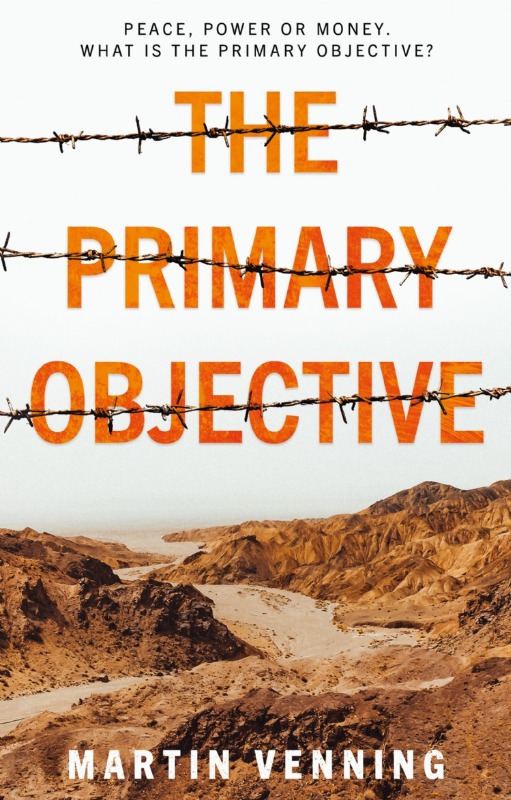

Artis-Ann , Features Writer
Review: The Primary Objective By Martin Venning
Well, what can I say? This major undertaking is clearly the result of extensive research and a vivid imagination, not to mention hard work in getting it all on paper. I read Martin Venning’s claim that his new book only came about because of lockdown and he has clearly made very good use of his time.On one level, it is a simple story: Peace International, a charitable organisation, funded by several different governments, seeks to prevent wars and to provide information which will assist in the maintenance of peace between global powers. A group of volunteers who, between them, have a variety of skills, sets out on a mission to confirm the veracity of reports of the building of a chemical and biological weapons centre in Iran, for the production of weapons of mass destruction. The clandestine entry of this seemingly unlikely group, into a ‘dangerous and semi-lawless’ part of the country (particularly the village of Ibrahim Sami), the search for evidence and their retreat, form the baseline to this novel.

Also by Artis-Ann ...
Spying Is Lying: The Traitor By Ava GlassFlawed Characters:The Party House By Lin AndersonAn Extraordinary Life: Three Things About Elsie By Joanna CannonWhat A Tangled Web: Wartime For The Chocolate Girls By Annie MurrayPoems And Pressed Flowers: The Botanist By M. W. CravenThere is a lovely caricature of the ministry officials, or ‘Westminster rabble’, when they are first introduced. Although ‘Eddie, my dear fellow’ becomes far more realistic when he finds himself on more dangerous soil, literally and metaphorically, having to trust officials from governments with a distinctly different agenda from the one he is pursuing. The ease with which Jamshid can be recruited and subsequently controlled, is subtle in its brevity but sinister enough. There is a nice cyclical touch when Jack, the most incongruous and frankly, unlikely, member of the PI team, features at the beginning and at the end. Shimina may simply be attracted to him at first, as a good looking catch, but she sees that he also has his uses; the suggestion at the end, therefore, that there is more to their relationship than infatuation and a means of escape, is a positive one.
With its long chapters, this is not a book which can be read in short bursts. The narrative is mired in detail which serves to provide a visual understanding of the area as well as an insight into the complex web of political dealing and double-dealing which occurs. I admit to welcoming the line ‘it was time to refocus and press forward to a conclusion’ and I sighed when I realised I still had ninety pages to go, but occasional typos notwithstanding, it was well worth seeing it through to the end.
The Primary Objective is published by Matador